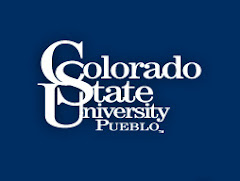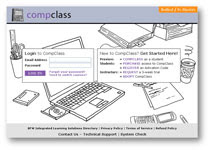Co-sponsored by:
Bedford/St. Martin’s Publishers &
CSU-Pueblo Writing Program
September 12th, 2008 * 8:30 a.m. – 5:00 p.m.
The Oxford Hotel * Denver, CO
Agenda
8:30 – 9:00 Continental Breakfast & Registration
9:00 – 9:15 Introduction & Welcome - Theater
Kate Geraghty, Bedford/St. Martin’s Publishers
Katherine Frank, CSU Pueblo
9:15-10:45 Responding to Student Writing: Workshop - Theater
Nancy Sommers, Harvard University
“The writing teacher’s ministry is not just to the words, but to the person who wrote the words.” William Zinsser
“It must be tough looking at a very large stack of papers, but it is the most helpful part of the essay process because without a reader the whole process is diminished.”
Alexandra Hays, college student
Our collective interest in responding is deeply professional and personal. We feel a weighty responsibility in responding to our students’ words, knowing that we, too, have received comments that have given us hope—and sometimes despair—in our abilities as writers. The words teachers scribbled on our papers are often the same words we scribble in the margins or at the bottom of our own students’ pages. These words, we hope, our students will take with them as they move from our class to the next, from one assignment to another, across the drafts. Responding to student writing reminds us of the pleasures of teaching writing, the call and response between our students’ words and our own. Yet most of us acknowledge that we don’t know how students use our comments or why they find some comments useful and others not.
In this workshop, we will engage with the words and ideas of one student writer. We’ll read the student’s draft and reflect on what it means to be a thoughtful reader of this student’s work. We will be asking questions such as: What lessons do students learn from comments? What distinguishes comments to inspire revision from comments to assess a final draft? And how do we engage students in a dialogue about their drafts? The workshop will provide an opportunity for us to talk teacher-to-teacher about the work we do, collectively and individually, in responding to student writers.
10:45 – 11:00 Break
Composition Workshops
WORKSHOPS I – 11:15 – 12:15
Workshop A: Problem-based Learning: Inspiring Critical Thinking and Interdisciplinary Learning - Theater
Katherine Frank, CSU Pueblo
Session Description: This workshop will provide an introduction to Problem-based Learning and ways to incorporate this teaching and learning philosophy into the composition classroom. Participants will have the opportunity to collaborate with their peers and brainstorm regarding ways to use PBL with their students. There will be time for discussion, questions, and sharing of strategies.
Workshop B: Refiguring Technologies in Multimodal Communication: Ways to
Improve Engagement and Learning – Hamilton Room
Rebecca Burnett, Georgia Institute of Technology
Session Description: Begin with two foundational premises: communication is both rhetorical and multimodal (Ball; Kress and Van Leeuwen; Selfe). Then consider the “social and material spaces” (Meeks): students and their wireless laptops are part of a complex and not necessarily learner- friendly “information ecology” (Nardi and O’Day). Finally, increase the social, psychological, and cognitive engagement of undergraduate students who move back and forth between the pedagogy of childhood and the andragogy of adulthood (Hiemstra and Sisco; Knowles; Zuckerman-Parker). These factors form a backdrop for the workshop to focus on three areas:
· Analysis of innovative multimodal assignments and assignment sequences used in conventional, lab, and laptop classrooms
· Rhetorical integration of written, oral, visual, electronic, and nonverbal communication
· Curricular changes that incorporate andragogy into undergraduate pedagogy, especially student responsibilities in planning, managing, and assessing problem-based projects
Workshop C: Teaching Creative Nonfiction: Concepts, Art, and Craft – Brooks Room
Doug Hesse, University of Denver
Session Description: How do various genres of creative nonfiction—essay, memoir, literary journalism, and so on—fit in the writing curriculum? And, wherever, we place them, what teaching practices are effective, even enjoyable? My presentation will address both questions. After a quick overview of some history and concepts, along with some suggested readings, I’ll sketch a couple of course options, describe a number of assignments, and discuss teaching some teaching approaches I’ve found useful.
12:30 - 1:30 LUNCH - THEATER
WORKSHOPS II 1:45 – 2:45
Workshop D: Working Effectively with ESL Writers: Designing Assignments, Providing Feedback, and Using Technology – Theater
Susan Miller-Cochran, North Carolina State University
Session Description: With the increasing linguistic diversity present in all writing programs, effective strategies for working with ESL writers are increasingly in demand. In this hands-on workshop, participants will discuss relevant issues to consider when teaching in a linguistically diverse classroom such as constructing effective writing assignments, providing useful feedback, and developing guidelines for using technology with multilingual writers.
Workshop E: Land Mines Ahead: Teaching with Computer Games – Hamilton Room
Ryan M. Moeller, Utah State University & Ken McAllister, University of Arizona
Session Description: Teaching with computer games is fast becoming all the rage with the likes of Greg Ulmer, Jim Gee, Cyndi Selfe, and several others who are either teaching with computer games or talking about it. But the central question concerning this symposium workshop is: how feasible is it, really, to teach with computer games? The workshop leaders will present the five most common challenges of teaching with computer games and facilitate informed discussion from the workshop participants for overcoming or addressing those challenges.
These challenges are:
· Administrative: WPAs have concerns about setup costs and assessment.
· Technical: Game platforms can be expensive, insecure, and become obsolete.
· Pedagogical: How does one authoritatively map skill transfer from game settings to real world applications?
· Content-Centered: Navigating the cultural, ethical, and moral values embedded in games is difficult.
· Production/Adoption-Oriented: There are thousands of games and dozens of game development tools—which ones are right for your curricula?
Workshop F: Teaching Multigenre/Multimodal Composition – Brooks
Liz Kleinfeld, Metropolitan State College of Denver & Amy Braziller, Red Rocks CC – Brooks Room
Session Description: Our first year composition students consistently appreciate the freedom a multigenre/multimodal approach allows them. They emphasize that the ability to be creative is important to their learning process, and they are often pleasantly surprised, as one student wrote in a course evaluation, “that there was an element of fun in an English class." We have found that a multigenre/multimodal approach helps students and instructors alike re-engage with composing and researching. This session will explore ways to introduce genre to first year composition students, teach them to critically read different genre pieces, compose in different genres, and conduct research in genres.
WORKSHOPS III 3:00 – 4:00
Workshop G: Recharting the Landscape of Writing Instruction: The Influence of Information Technology on our Goals and Curricula – Theater
Mike Palmquist, Colorado State University
Session Description: In 1983, Joyce Kinkead and Jan Ugan cautioned us about writing instructors’ growing enchantment with the possibilities afforded by new computers. “We should seriously consider our goals and objectives of writing instruction and then see how the computer can be used to attain some of these goals,” they wrote. “In other words, our curriculum should not change simply because of the new toy.” For decades, many of us have accepted this argument as a foundation for our approach to the use of technology in writing instruction. In this talk, I consider the value of this approach, in terms of both its strong role in grounding student writing within the rhetorical situations they face and its utility in avoiding instrumental approaches to the use of technology in instruction. I also examine its role, however, in limiting our understanding of rhetorical and in understanding the relationships between the media we use to share our ideas with and influence readers. I argue for a balanced approach that respects the goals of teachers and students while considering the material effects of writing technologies on the rhetorical situations in which we find ourselves.
Workshop H: Exploring multimodal research traditions and methods in teaching composition – Hamilton Room
Richard Colby & Rebekah Shultz Colby, University of Denver
Session Description: Much work has been done looking at how multimodal writing can be integrated into the composition classroom, exploring work in different media and contexts. However, as part of many projects, research is just as important an element, but it is often used in traditional ways. We would like to discuss multi-modal research in support of writing projects. In our classrooms, we teach multimodal research strategies that involve many conceptions of research both in and outside the university. We will briefly look at using computer technology to support these research strategies, but also look at how multimodal research and writing intersect in other ways. Specifically, we will also share approaches using the MMORPG World of Warcraft.
Workshop I: Plagiarism and Computers – Fun Ways to Take Control of the Issue – Brooks
Nick Carbone, B/SM and University of Maryland
Session Description: In this session, we look at plagiarism from the inside out: if it's an issue exacerbated by computer technology and the ease of copying and pasting, of surfing and downloading, how can we apply a little pedagogical judo and turn things our way? What are some strategies and moves we can make to flip the issue from something to be worried about to something we can embrace for its teaching opportunities? And heck, sure it's a serious issue, but why not make learning about it intellectually fun?
4:00 – 4:45 What We Have Learned – A Closing Thoughts Discussion - THEATER
Kate Geraghty, Bedford/St. Martin’s Publishers
Nick Carbone, Bedford/St. Martin’s Publishers
5:00 – 6:30 Cocktail Reception – Sage Room
Departures



